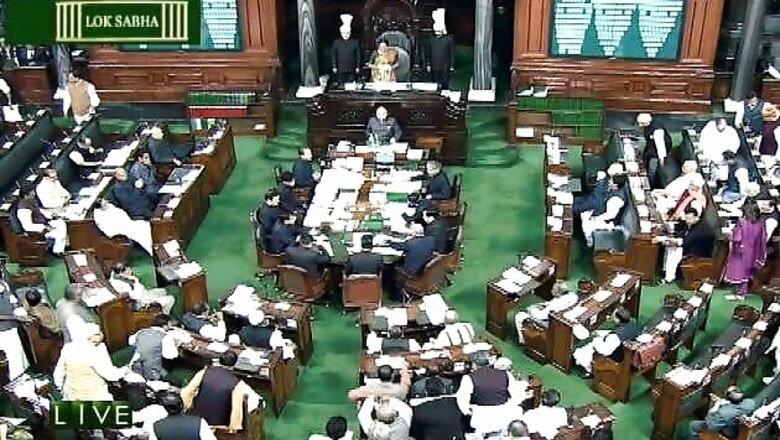
views
New Delhi: Unfortunate, but true. The storm over Telangana has led to several unprecedented ugly scenes in the current session of Parliament, the last of the 15th Lok Sabha. Almost the entire budget speech of Railway Minister Mallikarjun Kharge was washed out on Wednesday due to disruptions.
The House witnessed a never-before spectacle of four ministers trooping into the Well of the House and disrupting presentation of the interim Railway Budget which was tabled. The four Ministers including one of Cabinet rank - KS Rao, D Purandeshwari, K Suryaprakash Reddy and Chiranjeevi were protesting against the bifurcation of Andhra Pradesh. Some of them even held placards.
Two other Ministers silently supported the four by standing in their seats. Six members of the Lok Sabha belonging to the ruling party have been expelled, but the protests have refused to die down. One of the expelled members Sabbam Hari has threatened to commit immolation in the House if the Telangana bill is brought. He claims that two other members from Seemandhra will follow suit.
Protests have become routine, but a new tactic is to hold big placards in front of the Chair, be it the Lok Sabha or the Rajya Sabha. The table in the Well, which is an extension of the Chair, where the Secretary General and other officials are seated, is also under increasing attack with papers being virtually snatched from the staff.
On Wednesday, an agitating member grabbed a pen from an officer while an order paper. Interestingly, Lal Singh, a tough looking Congress backbencher from Jammu and Kashmir, was today seen sitting in the front bench virtually by the side of Sharad Pawar, Sonia Gandhi and Kamal Nath.
Notices of no confidence motion against the Manmohan Singh government have become virtually a daily affair including those from the members of the ruling party. A clash between a supporter and an opponent of Telangana in the Well was averted due to the alertness of some senior members including Sharad Yadav and Saugata Roy. Incidently, the 15th Lok Sabha, formed after the UPA returned to power with a healthier majority, is likely to go down as the most disrupted since 1952, the year of the first general election.



















Comments
0 comment